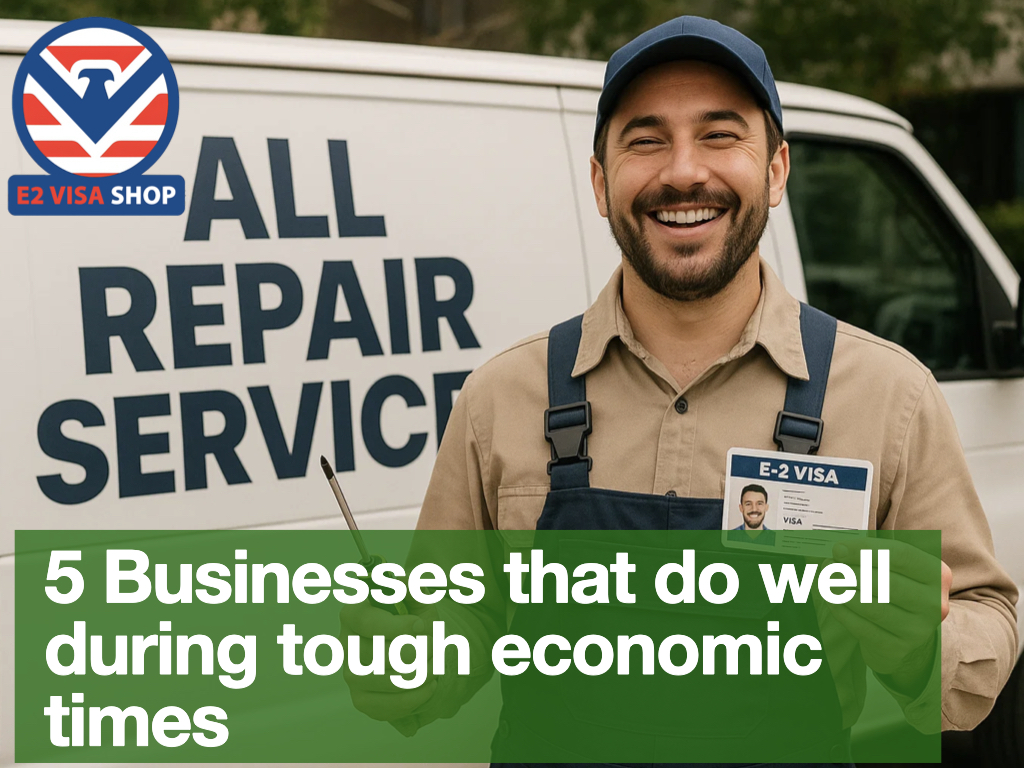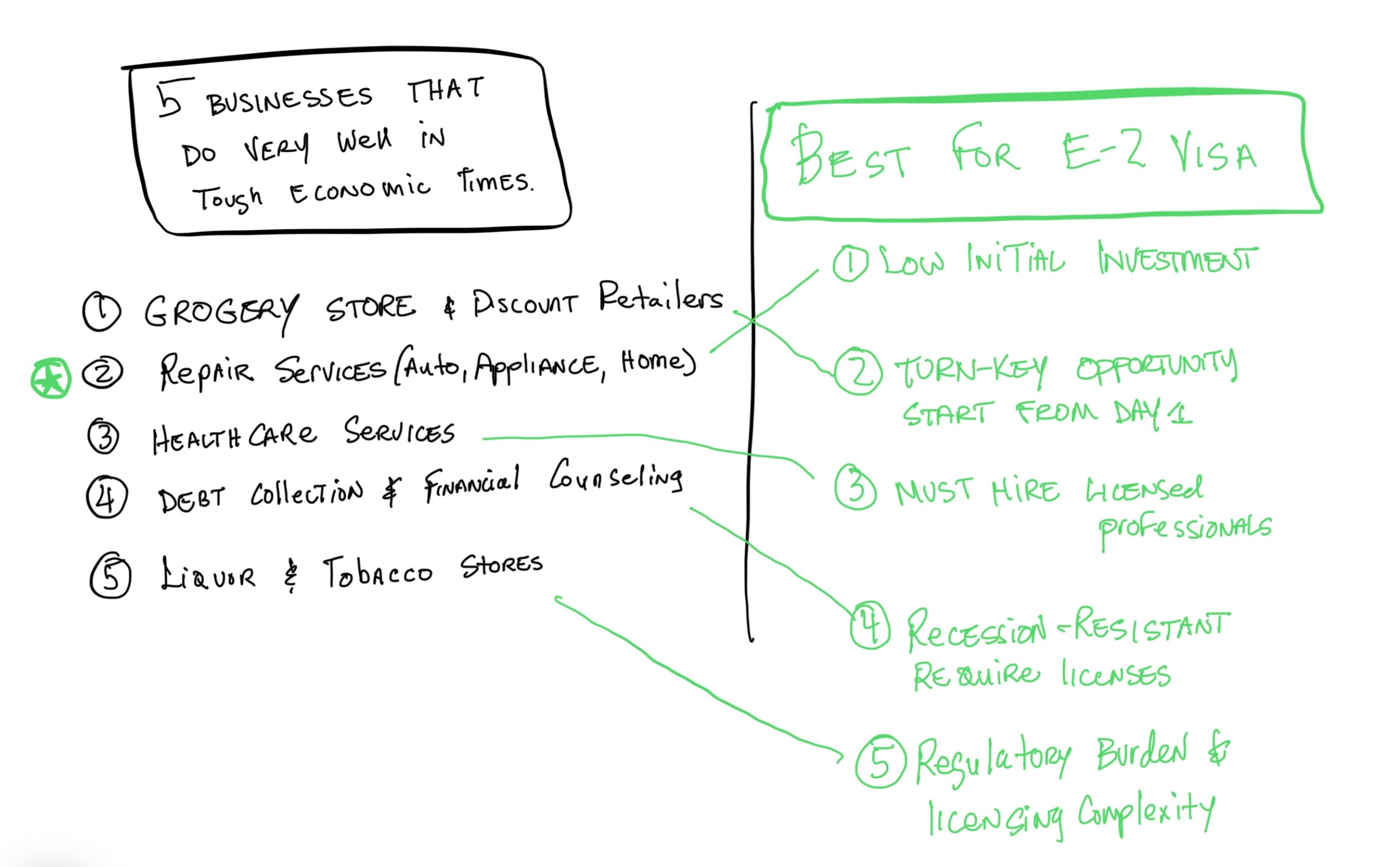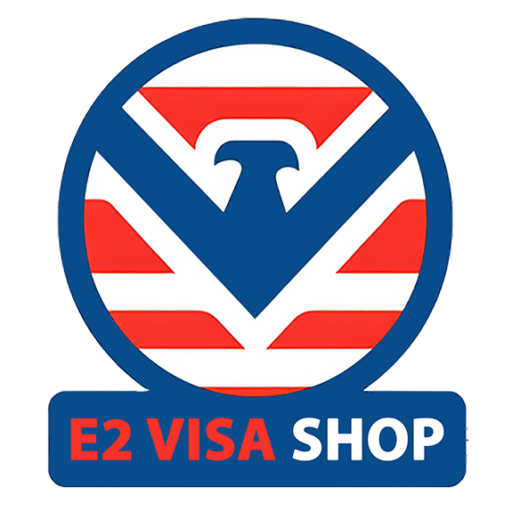
When economic conditions tighten, certain businesses continue to perform well — some even grow. For E-2 visa applicants, the key is finding a business that not only resists downturns but also meets the U.S. immigration requirement for active management and job creation. Here are five businesses that do just that, ranked by practicality and alignment with E-2 visa goals.
5 Recession Proof Businesses in 2025 – Great for your E-2 Visa.
1. Repair Services (Auto, Appliance, Home)

Repair businesses are among the most recession-resistant industries you can own. When money gets tight, people fix instead of replace. Whether it’s auto repair, HVAC, or appliance services, this category offers a strong combination of consistent demand, manageable investment, and hands-on involvement — all positives from a U.S. immigration perspective.
Why it’s ideal:
- Low to moderate investment threshold
- Strong demand in all economic climates
- Easy to be actively involved (a visa requirement)
- Franchise options available for added support
2. Grocery Stores & Discount Retailers
Basic needs don’t go away during a recession. In fact, demand often shifts toward budget-friendly options. Operating a small grocery store or discount retail outlet (such as a dollar store) can be a solid E-2 option — especially if tied to a recognizable franchise.
Considerations:
- Higher upfront costs (inventory, leases, staffing)
- Requires tight operational control
- Strong demand and repeat business
- Franchises exist with E-2 visa support
3. Healthcare Services (Non-Clinical Ownership)
Healthcare doesn’t slow down during tough times. But unless you’re a licensed provider, your role will need to be on the administrative side — such as managing a clinic or wellness center. With the right structure, this can work, but you’ll need to hire licensed U.S. professionals and stay hands-off with direct care.
Pros:
- Strong, stable demand
- High-growth sector
Cons:
- Heavily regulated
- Staffing and compliance are complex
- Less hands-on for the owner
4. Debt Collection & Financial Counseling
When people and businesses struggle financially, services that help manage or recover money become more valuable. This space can be profitable, but it’s also highly regulated and requires a deep understanding of U.S. laws and consumer protection rules. For a newcomer to the U.S. market, this can be challenging.
Best fit: Applicants with a background in finance or law, or who are partnering with U.S.-based experts.
5. Liquor and Tobacco Stores
These stores often hold up during recessions — people keep buying. However, liquor and tobacco retail is one of the most heavily regulated retail sectors in the U.S. Licensing varies significantly by state and often includes residency or citizenship requirements, which can complicate things for a foreign investor.
Bottom line: Strong margins, but red tape makes it the least ideal for most E-2 applicants.
Final Thoughts
The E-2 visa isn’t just about investing money — it’s about running a real business that contributes to the U.S. economy. In uncertain times, choosing the right industry is even more important. Repair services stand out as the most practical and accessible option. Grocery and discount retail follow closely, especially for those with a larger budget or franchise interest. From there, the opportunities narrow, but with the right structure and planning, even the more complex sectors can work.
If you’re evaluating a specific business or franchise for your E-2 visa, make sure it checks all the right boxes — especially when it comes to sustainability, compliance, and your ability to play an active role.
www.E2VisaShop.com
